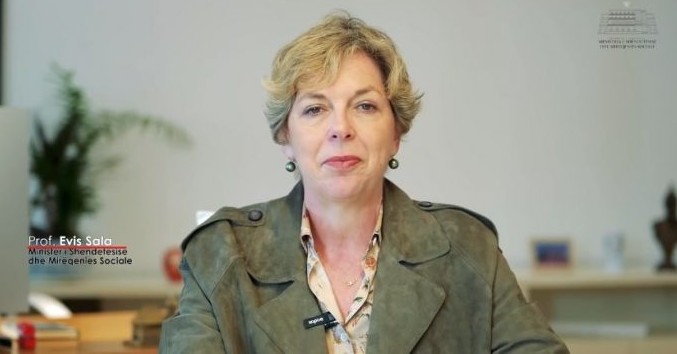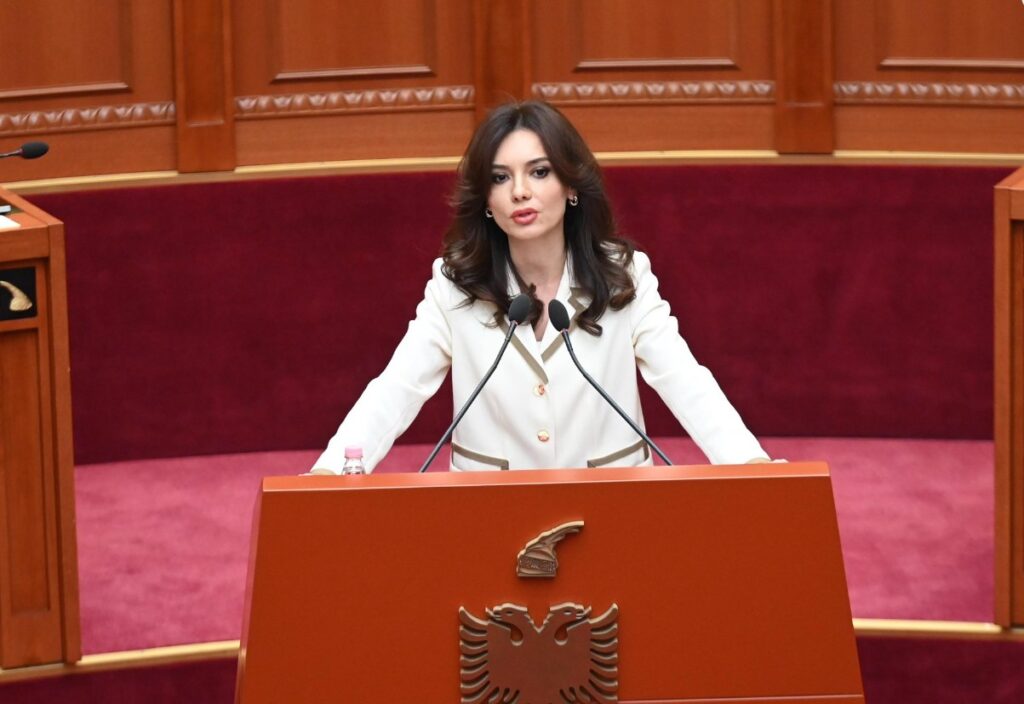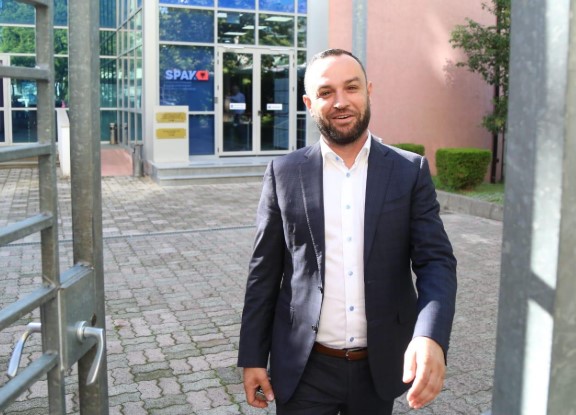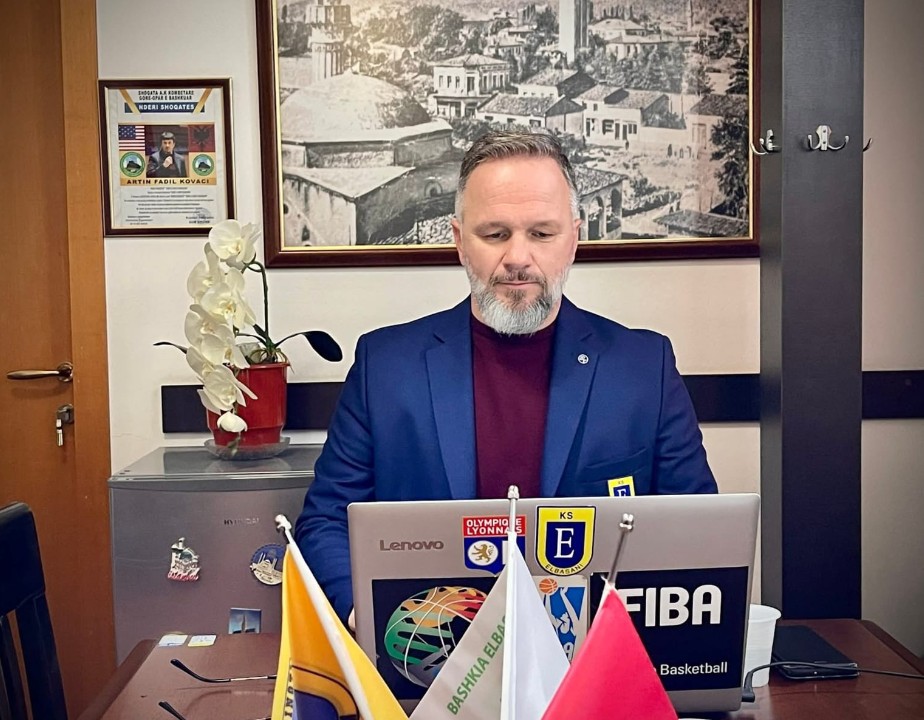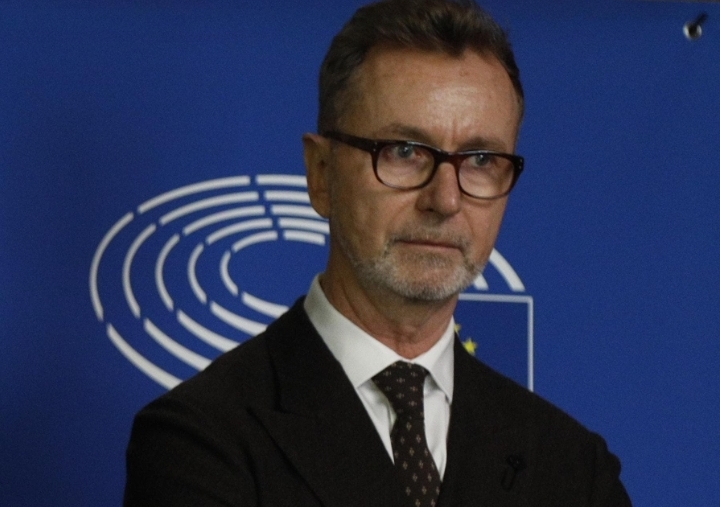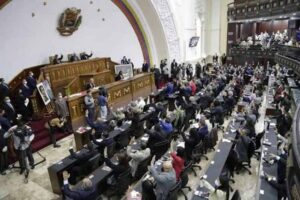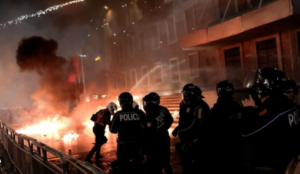With eyes on EU, Albania hopes to draw line under Serbia drone row

Speaking to Reuters, Ditmir Bushati also said he thought Albania would be ready to join the European Union in 10 years but voiced concern at the anti-enlargement rhetoric now coming from some EU leaders.
Bushati further said that Albania was open to further opportunities to assist a U.S.-led coalition campaign against Islamic State insurgents who have overrun large parts of Iraq andSyria, causing international shock waves.
Albania’s Oct. 14 Euro 2016 soccer qualification match in Belgrade had to be abandoned when fighting erupted after a remote-controlled drone trailing a flag of “Greater Albania” flew over the stadium, triggering a pitch invasion.
The incident touched off a war of words between Tirana and Belgrade, as well as attacks on bakeries owned by ethnic Albanians in Serbian towns, showing how national resentments in the region continue to lurk just below the surface.
“The events that occurred before, during and after the match were very unpleasant and we have condemned the provocations and the violence,” Bushati said during a trip to London.
“But I believe it is important to look to the future and to open up a new chapter in relations between Albania and Serbia which I think would be key for democratic stability of the region and its advancement towards the European Union.”
After being delayed by the fallout from the soccer match, Albanian Prime Minister Edi Rama is now due to meet Serbian counterpart Aleksander Vucic on Nov. 10 in what will be the first visit to Serbia by an Albanian leader for 68 years.
Bushati said although Albania and Serbia had serious issues, he hoped the visit would continue some of the work on improving Balkan relations done in Berlin earlier this year and he hoped the meeting between Rama and Vucic would have “good elements”.
“I believe we could find a level playing field with Serbia because there are issues of mutual importance and issues that are key for the European integration of the region.”
ENTER EU IN A DECADE?
At the heart of the talks in Belgrade is the call from EU powers like Germany for greater stability and cooperation between Balkan member states on aspects like infrastructure that could benefit the region as a whole.
For Albania, this is also key if it wants to achieve its overarching aim of joining the EU as soon as possible.
“I think that Albania would be ready in a decade to join the EU but it is very important to ensure at the same time that there is a political appetite in the EU to have Albania and other western Balkans on board…,” said Bushati.
“It takes two to tango.”
Would-be EU joiners face resistance however as calls for a cap on immigration within the 28-nation bloc rise even in well performing economies like Britain. New European Commission chief Jean Claude Juncker meanwhile has said there should be no further enlargement over the next five years.
Bushati said that with no Balkan country likely to meet the EU criteria in that time, Juncker’s statement was not necessarily an issue, but stressed it was important not to send too negative a signal. “This is not a very reassuring in terms of a public message,” he said referring to Juncker’s remark.
In the western Balkans, Albania, Serbia, Montenegro, Macedonia, Bosnia and Kosovo all aspire to EU membership, but they must do more to tackle organized crime and corruption to qualify, an EU report said last month.
Memories of the wars that tore apart old Yugoslavia next door to Albania two decades ago are still raw in the Balkans and there is concern about Islamic State attempts to recruit members among economically deprived and disaffected young people there.
Bushati said Albania would be interested in further steps in support of the coalition campaign of air strikes against Islamic State, having already contributed ammunition.
“The Balkans due to its geographic location is under genuine risk (from Islamic State and militant Islam) because of the routes (linking Europe with Syria), but also because of the fact security structures are not sufficient, social cohesion is as yet unformed and political stability is still fragile,” he said.
“I strongly believe the EU’s role in this is really instrumental,” he added, explaining that Brussels needed to keep the carrot of a more prosperous life in the EU in the sight of disadvantaged citizens in Albania and elsewhere in the Balkans who might otherwise be tempted by the adventure of militancy.
Bushati said the Balkans was serving as a “gatekeeper” for limiting militant movements between Europe and the Middle East and therefore it “should be helped to have this prosperity narrative”.
 KOHA JONË SONDAZH
KOHA JONË SONDAZH










